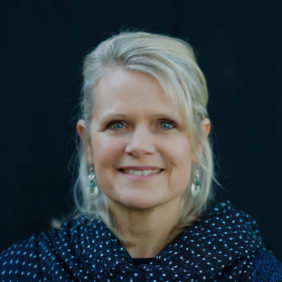Recently, one of our team members shared that they have been struggling to cope with a serious disability. My heart dropped because 1) I care a lot about this person, and 2) like most other small businesses we have limited resources to draw upon and every team member’s contributions are essential to our continued success.
July 27th marks the anniversary of the Americans with Disabilities Act (ADA), which was signed into U.S. law in 1990. I’ll admit that for as much as the ADA has been lauded as important for our society to embrace from an equity and inclusion perspective, it has not been easy for most organizations to incorporate in practice.
From costly facility upgrades to expensive court battles over the legal definitions of what constitutes a “disability” I’ve noticed that for most leaders, HR practitioners and business owners ADA compliance tends to be associated more often with great headaches instead of opportunities.
But when a leader or someone they know suddenly becomes disabled or discloses that they are living with a disability, the leader’s view tends to expand, and it may even nudge them into an opportunity zone.
Disabilities, whether mental or physical, visible or invisible to others, are important opportunities for us to face some uncomfortable truths about our own beliefs, assumptions and ways of being in the world. For example, many of us were taught implicitly or explicitly as children that disability means “less than”– as in less smart, talented, capable, attractive, strong, virtuous or lovable.
It’s important for leaders to recognize when limiting beliefs about disabilities are operating and informing our “business decisions” which are ALWAYS in fact, people-related decisions in disguise.
Beyond checking your own assumptions and those of other decision makers in your organization, here are four additional steps we recommend:
- Find out what state, federal or international legal statutes apply to your organization for handling disability-related disclosures and accommodation requests, such as leaves of absence, flexible scheduling, etc. Be sure to check privacy-related rules and policies, also. Remember that just because a team member chooses to disclose a disability to you, that does not automatically mean you have a free license to share it with someone else.
- Express care and concern for their well-being BEFORE you focus on how their work will get done. People First is one of six mindsets in The Learn Lead LIft Framework® and a key part of Leading the Learn Lead Lift® Way. Focusing on the person, then their work, is one example of how leaders embody a People First mindset.
- Ask your team member how you can best support them right now and then follow up regularly to assess whether any adjustments are needed. Keep in mind that when people are living with a disability, their needs may change over time. It’s important to remain open and flexible so that you can adapt accordingly.
- Consider how you can make the workplace better for everyone. Often leaders discover a change they implemented to accommodate someone living with a disability benefits everyone on the team. For example, adjusting presentation slides so they display fewer words with larger font not only helps people with low vision using a screen reader but also will increase their readability for everyone.
At Kadabra, we actively practice, “design for the margins” when we facilitate a meeting or create a new learning solution.
For example, we embed closed captioning into all of our video based content. Does this require an extra step and increase our development costs? Yes, it does.
Do we do it because some of our clients are deaf and requested closed captioning? No, we do it for two reasons. First, because we are aware that many people without hearing loss learn better when they can simultaneously read words on a screen while listening to the audio.
Secondly, we want to demonstrate how to design inclusive, equity-minded, authentic and trauma-informed experiences so that people living with disabilities don’t have to spend energy asking for accommodations when they could be directing their time and energy in more productive ways.
What do your stakeholders living with disabilities need from you that you may not have thought about yet?
Keep in mind that your stakeholders include your customers, suppliers, shareholders, board directors, community members and employees.
Answering this question will likely help you uncover opportunities to engage your stakeholders in meaningful ways that you wouldn’t otherwise have considered.
If you would like to share suggestions from your own experience, have questions about The Learn Lead Lift® Framework or just want to learn more about our solutions for leadership development, let’s talk! Email hello@wearekadabra.com, text or call us at (408) 444-6625.


 Heather Leavitt-Martinez (she/her/hers) – Senior Product Manager
Heather Leavitt-Martinez (she/her/hers) – Senior Product Manager Wendy Ryan (she/her/hers) – CEO
Wendy Ryan (she/her/hers) – CEO Shawn Bunger (she/her/hers) – Senior Consultant
Shawn Bunger (she/her/hers) – Senior Consultant Crystal Whiteaker (she/her/hers) – Senior Consultant
Crystal Whiteaker (she/her/hers) – Senior Consultant Gail Finger (she/her/hers) – Senior Consultant
Gail Finger (she/her/hers) – Senior Consultant Monica Silkwood (she/her/hers) – Director of Operations and Experience
Monica Silkwood (she/her/hers) – Director of Operations and Experience Johanna Lyman (she/her or they/them) Senior Consultant
Johanna Lyman (she/her or they/them) Senior Consultant Sherri Horan (she/her/hers) – Senior Consultant
Sherri Horan (she/her/hers) – Senior Consultant
